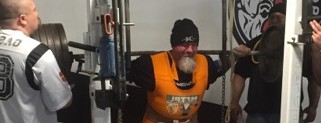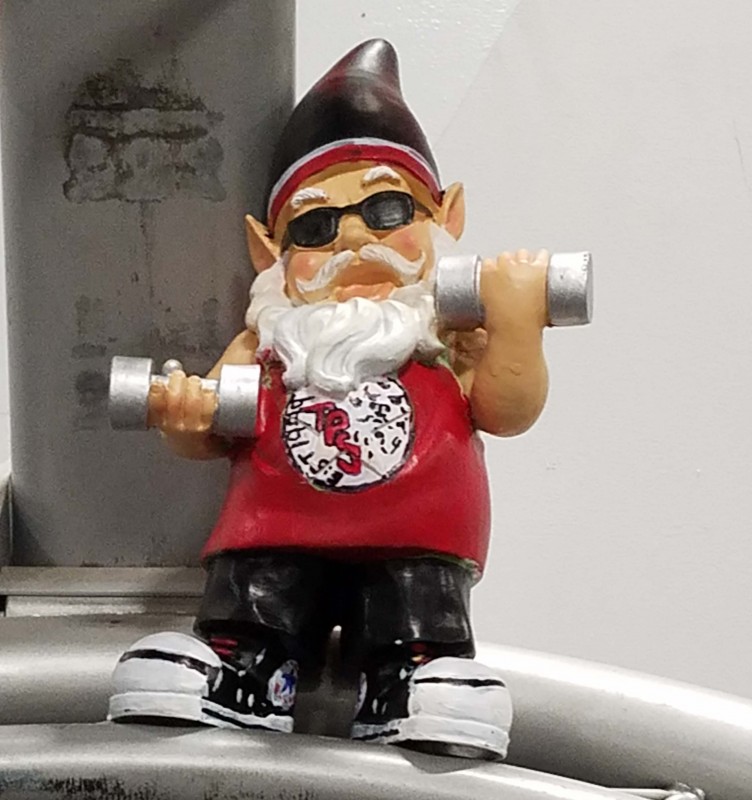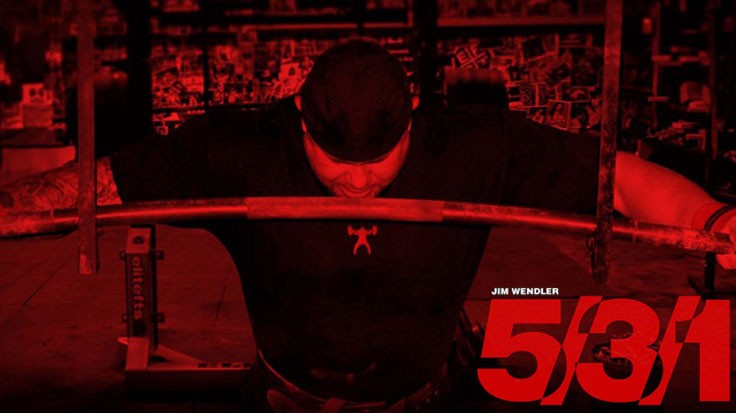
I am going to guess that most of the readers of my column and this site follow a program and do not just head to the gym blindly.
In this installment I am going to go over whether you should stick to the plan or change it.
As usual, let me go back a bit and set up the story:
When training clients we use a program at TPS and it is generally written in 8 week blocks or more.
When you write a program, it is best to stick to it but sometimes you need to deviate. I would say that to the one, every client gets their feathers ruffled if you decide to go off the plan.
Usually an explanation will pacify this but there are some people that feel that what is on the paper is the word of God and it is all knowing and cannot be changed or deviated from.
This is just not the case.
When I sit in my high ivory tower and create the World’s Greatest Program for someone to follow it does not mean that every exercise, amount of sets, RPE assignment or variation is what they need to do today.
This is a huge factor I my training and one of my longest clients too.
I can’t write a program for me to follow as it usually needs to be changed based on orthopedic issues that come and go.
It’s not that I don’t want to follow the plan.
On the contrary. I love order and hate chaos, so a plan is what I thrive on.
Being forced to deviate from the plan gets in my head, even though I know it is the right thing to do.
This is similar for the client I mentioned.
She has a few orthopedic issues and we need to go day to day depending on movement quality, restrictions and other factors.
With her, I use a general guideline and template and swap in mobility fixes and exercises that stress movements not specifics.
What I mean by this is that we are looking for certain movements each session, such as a Squat pattern.
This does not mean she has to squat, rather she has to use that movement pattern.
Get it?
OK, for example, let’s say I wrote plain old squats (NOT BACK SQUATS-some douche started calling squats back squats a few years ago and it too off like wild fire. It’s not a back squat, it’s a fu**ing squat) in the plan and she has a shoulder mobility today as a result of whatever….
Do we stick to the plan or change it?
Of course we change it.
I could use a Safety Bar Squat in this case, or a Belt Squat, or who knows.
The point is I am looking for a movement pattern, not a specific exercise in this type of client.
What about you, the EliteFTS reader who is either a very dedicated lifter who does not compete or you are training for a meet, a Strongman contest or some other event and you have a program….
What do you do when something happens?
Let’s look at the types of things that can happen and may cause you to adjust the program:
- Got stuck doing a double at work
Have an extreme amount/type of external stressors
Illness
Flexibility/Mobility Issue OR Strength Imbalance Arises/Is Discovered
Injury
Overtraining symptoms
You are not getting stronger
These are the primary issues we see arise when needing to adjust a program.
DISCLAIMER: This is not a prescription to deviate from your program, just a guide to work from in order to continue making progress.
I’ll review what I think you should do for each. Now of course there may be exceptions for each individual and I ain’t your coach and I don’t know you, but this is what I have seen is the correct option in my experience.
Got stuck doing a double at work:
This may sound like a bullshit excuse to modify your program but it may not be depending on what you do for a living.
Evaluate your plan for the day and how you feel. If you are supposed to take 95% in the squat for 3 sets of 2, got 3 hours sleep and worked 16 hours as a bricklayer, you may want to adjust the program, or go tomorrow. However, you may want to suck it up and hit your main lifts and cut back your accessory work, or do it the next day.
Have an extreme amount/type of external stressors:
This is the toughest one to figure out as external stressors manifest themselves physically and well as mentally.
External stressors can include extreme changes in lifestyle such as divorce, changing/loss of job, birth of a child or 1000 other things.
This is where you need to do some self-evaluation and talk to your coach if you have one.
Everyone handles stress differently and you need to know how you do. I am not referring to normal day to day stress here, I am referring to unusual and extreme stressors.
Don’t be a pussy, but don’t be a hero. Figure shit out and adjust as needed.
Illness:
I find this to be an easy one.
If you are just plain sick, I use the old formula of sickness above the neck-suck it up and train; sickness below the neck-take it off.
This means if you have the sniffles and a head cold, suck it up and get your ass in and bust ass training.
If you have a fever, achy joints and are squirting your body weight out of your ass in liquid every 20 minutes-stay home and rest.
Your body is telling you something.
Listen to it.
Flexibility/Mobility Issue OR Strength Imbalance Arises/Is Discovered:
Mobility is day to day as my head coach Kevin says all the time.
What you do depends on the severity of the flexibility/mobility issues. You may simply need to do some different warmup techniques or add in releases using mobility products that you don’t normally do.
You may need to add in a new movement prep exercise or corrective exercise to address the area.
If you have new strength imbalances or you discover an underlying one, you need to look at your movement, your program and what the issue is.
This may require a professional such as an ART Practioner, a chiro or a well-qualified coach who specializes in movement to help you.
Injury:
This is another hard one. That’s what she said.
Deviating from your program due to injury is somewhat wise and can also be foolish depending on the injury and what you have upcoming.
If you are a lifter and have a major meet coming up soon, and the injury is not too bad, it may be wise to stick to the program
and add in recovery work and get treatment to address the injury. After all, you don’t do too many major meets per year and this is what you do.
You also want to look at the program and see if the lack of something or too much of something is causing the injury.
Major injuries are different. These will require you to deviate from the program.
As an example, I have had a few pretty big ones which required me to change things.
When I had my first knee surgery, obviously squats and deadlifts were out.
However, single leg presses, floor presses and machine work was not.
Find a way to keep training around the injury while it heals.
Overtraining symptoms:
We all know what these are. There was a bodybuilder that used to say there is no such thing as overtraining, just undereating and under-recovering.
This may be true but it still needs to be addressed.
If you are showing REAL signs of overtraining, consult with your coach or look at your program if you write it yourself and then look at your nutrition and sleep patterns.
Are they in order?
You may need to take a week off to heal up.
You may also need to eat a steak and stop being a bitch.
You are not getting stronger:
This is where you either need a different program or you are not implementing the program properly.
There are plenty of coaches who write really good programs and the implement them with their athletes and get results.
The key is in the implementation of the program.
Are you doing it properly?
This is assuming you didn’t get the program from an 18-year-old online coach on Instagram who bought 45,000 of his followers and doesn’t know his ass from his elbow.
Your program needs to be done correctly with the proper amount of intensity and rest.
If you follow an RPE based program written by a good coach and you turn every session into an RPE 10 it’s a good bet you’ll get injured, burned out or won’t get stronger.
Get the idea here?
Look at your program and discuss it with your coach. You should be able to figure it and adjust things.
If you wrote it yourself and you are not making progress, maybe you don’t know how to write a program, or you don’t know how to work hard.
Another thing on programs; you can’t follow a program for 2 weeks, 4 weeks or 4 months to know if it is working.
You need to give it time.
It’s about as simple as you can get but it works for those who IMPLEMENT it properly and follow it for a while.
You need to give a program time and effort to get results.
These are the primary issues we see arise when needing to adjust a program.
I hope this clears up some things for you.
Ask me a question-Be sure and Type to Murph in the header
Find me on Google-search for Total Performance Sports Malden, Mass. The Best Gym in Boston, Facebook too.
Oh, yeah, follow us on Instagram too. TPSMalden
SHARE THIS!
#bostonsstrongest
Vincere vel mori













